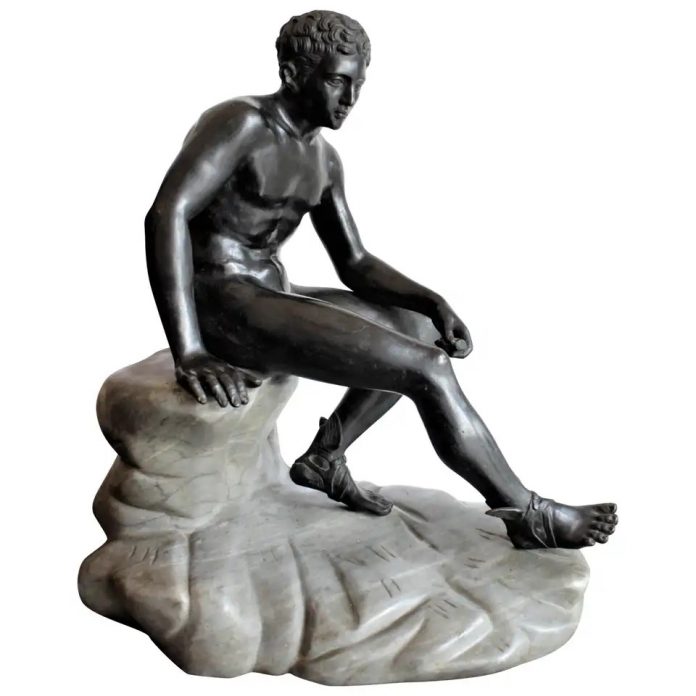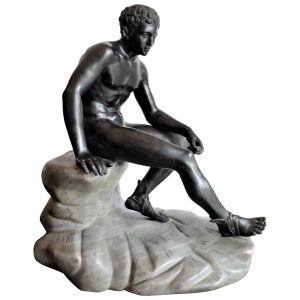It’s funny that philosophers are the people who keep artists from ruining civilization with their in-bred fantasies. Philosophers themselves are repugnant and society needs to protected from them also, or at least their direct influence should be mitigated. The thing is that Artists are not intelligent enough to destroy civilization, but philosophers are, so to some extent philosophers are even more dangerous than artists. I proposed that artists are in creative tension with philosophers; philosophers themselves are in creative tension with the citizen. The citizen is the archetype of the practical philosopher; as such, impractical philosophers, whom we shall refer to from now on as true philosophers, (which are most of them) hate the citizen. Out of the four archetypes of civilization, the citizen is the most often negated, and the most often derided and hated. The citizen is the most often duped. He is the philosopher of living experience however and so he possesses the purest and most infallible form of knowledge. In other words, he makes the philosophy of the true philosopher reconcilable with livability and reality. There is an ancient text called The Four Archetypes and it is from this opus that I take my theories on the founding meta-representations of civilizations. The Four Archetypes is authored by Yudhab, an ascetic and poet-philosopher of 8000 years ago; his ethnicity is unknown and his birthplace and personality are unknown. His only testament are his artworks and literatures. The following account is an excerpt from his The Four Archetypes
I was walking along last evening outside the Village Mesapa. I was walking with three other philosophers and three other poets and I remained silent as the three philosophers and three artists respectively fought over whether philosophy or art was more important to humanity’s advancement. 700 paces outside the wall there sat a young man who was a beautiful man. He sat with rolls of paper upon his legs and was cutting parts of the paper with a knife-like instrument. I stopped by this young man with the three philosophers on my right side and the three poets on my left side. The young man did not look up to us, but he raised his voice to us and said, “Why have you stopped in front of me?” I did not wish to appear shallow of mind so I did not tell him I had stopped because of his beauty; instead I lifted my hand and indicated his working. “What is that which are you are cutting?” “I am cutting,” said the young man, “that which is useless from the works of the philosophers.” I blinked stupidly because I did not understand what he meant by this. Thereupon one of my companions nudged my ribs uncomfortably so as to arouse me from my incomprehension. “I am a philosopher,” said I, “And my name is Yudhab. And none of true philosophy is useless.” He let his knife fall to the ground. “Yudhab,” said the young man, “Much of your philosophy is useless for those who are not old men locked in a tower all day and left to thinking. My name is Harinder, and I am a citizen.” Even though this young man was beautiful, I considered him arrogant for his denunciation of philosophy and his petty destruction of the works of philosophy. “A citizen? Tell me, Harinder, what does a citizen do? Does he not live life and does not living life require a philosophy?”
“Living the life of a citizen requires good philosophy, and good for a citizen means practical for a citizen. Your philosophy is practical in many things it says, but it is unpractical in many other things it says. It is that way with all philosophers. Many philosophers set out their philosophies only to satisfy an archaic curiosity which is an internal itch. When they have philosophized they have scratched their internal itch, and this is the only function of much of philosophy.”
“Even if what you say is true, Harinder, is not satisfying that internal itch necessary. If you do not satisfy such an itch, it will drive you to internal insanity and behavioral anarchy. Like all hungers, if it is not fed, it will consume itself, that is, it will consume the source of curiosity, or the curious one himself.”
“You are right in this, Yudhab, philosopher of the itch. That is what I call all philosophers: philosophers of the itch. But that is practical philosophy. You and your kind make grandiose pronunciations beyond these that are far removed from the life of the citizen. For instance, you and your kind say that men are rational creatures, but that is because you do not know any body who is not a philosopher. Yesterday I saw a man beat his daughter for dropping a pail of water from which he was drinking. She picked it up at once and prevented the spilling of water, but still he beat her, and as he swung his fists and kicked his feet, he himself knocked the pail and spilled the whole quantity of water. That is not rational. Not only will his daughter hate him, she will be very sick for days from his beating, and by his beating, he did what his daughter in her misstep failed to do: he wasted precious water. You see, Yudhab, philosophers discount atmosphere. They devalue the internal itch in each person which is not comprehended and which is only individual. My internal itch is different from your internal itch, and so you cannot create a universal system for relieving this internal itch, though you have tried to and call it philosophy. The poets are better philosophers than you are, for they acknowledge this internal itch and understand that it is universal in concept but individual in experience.”
And I went away from this man named Harinder, resolving to return tomorrow and understand him in a fuller fashion. Meanwhile, the poets had lingered behind to quote a thousand of their verses to the young man; this was their way of thanking him for his passing compliment to them.














